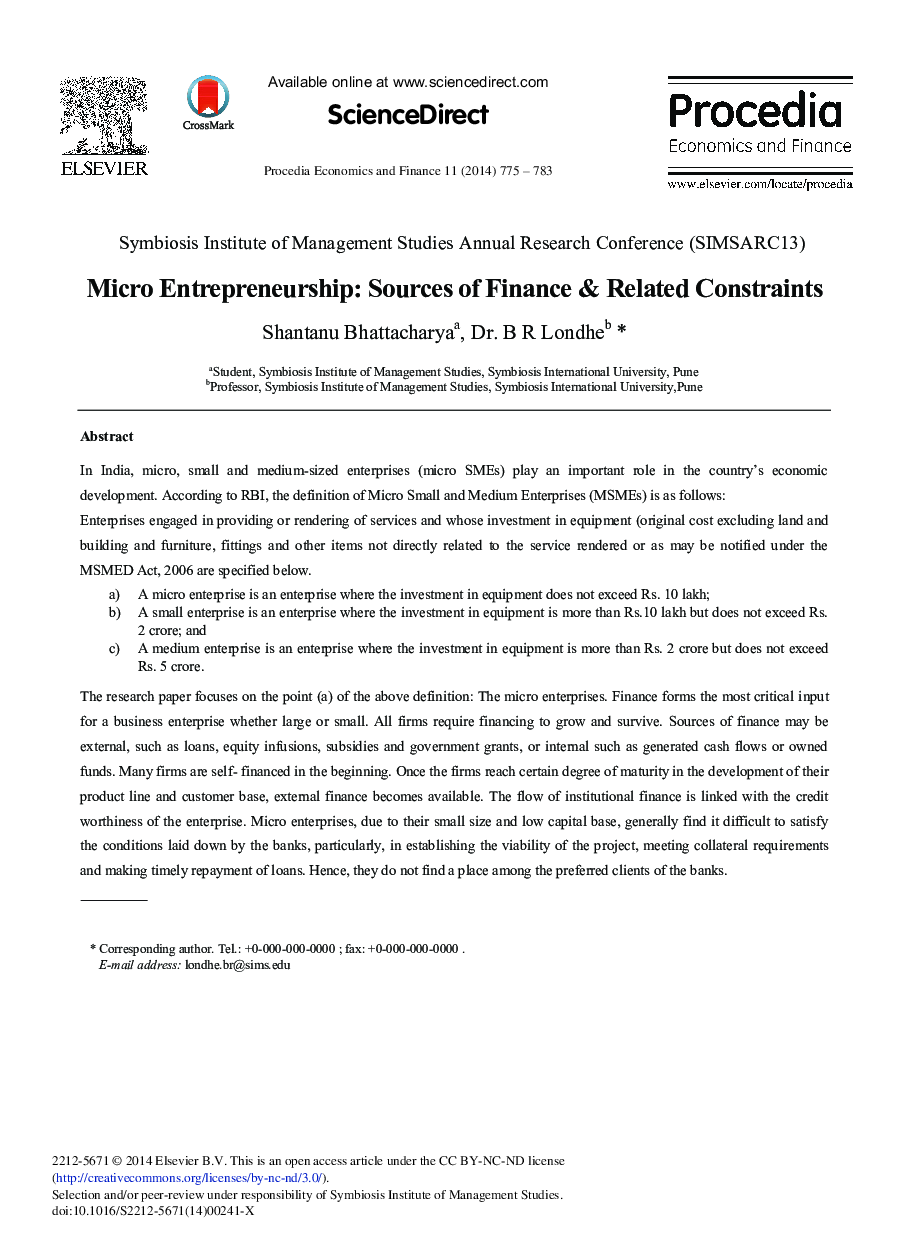| Article ID | Journal | Published Year | Pages | File Type |
|---|---|---|---|---|
| 980276 | Procedia Economics and Finance | 2014 | 9 Pages |
In India, micro, small and medium-sized enterprises (micro SMEs) play an important role in the country's economic development. According to RBI, the definition of Micro Small and Medium Enterprises (MSMEs) is as follows:Enterprises engaged in providing or rendering of services and whose investment in equipment (original cost excluding land and building and furniture, fittings and other items not directly related to the service rendered or as may be notified under the MSMED Act, 2006 are specified below.a)A micro enterprise is an enterprise where the investment in equipment does not exceed Rs. 10 lakh;b)A small enterprise is an enterprise where the investment in equipment is more than Rs.10 lakh but does not exceed Rs. 2 crore; andc)A medium enterprise is an enterprise where the investment in equipment is more than Rs. 2 crore but does not exceed Rs. 5 crore.The research paper focuses on the point (a) of the above definition: The micro enterprises. Finance forms the most critical input for a business enterprise whether large or small. All firms require financing to grow and survive. Sources of finance may be external, such as loans, equity infusions, subsidies and government grants, or internal such as generated cash flows or owned funds. Many firms are self- financed in the beginning. Once the firms reach certain degree of maturity in the development of their product line and customer base, external finance becomes available. The flow of institutional finance is linked with the credit worthiness of the enterprise. Micro enterprises, due to their small size and low capital base, generally find it difficult to satisfy the conditions laid down by the banks, particularly, in establishing the viability of the project, meeting collateral requirements and making timely repayment of loans. Hence, they do not find a place among the preferred clients of the banks.In today's world, micro businesses and particularly new ones are seen more than ever as a vehicle for entrepreneurship, contributing not just to employment, social and political stability, but also to innovative and competitive power. The focus has shifted from small businesses as a social good that should be maintained at an economic cost, to small businesses as a vehicle for entrepreneurship. With this shift came the renewed perception of the important role of entrepreneurship. Indeed, recent econometric evidence suggests that entrepreneurship is a vital determinant of economic growth.
